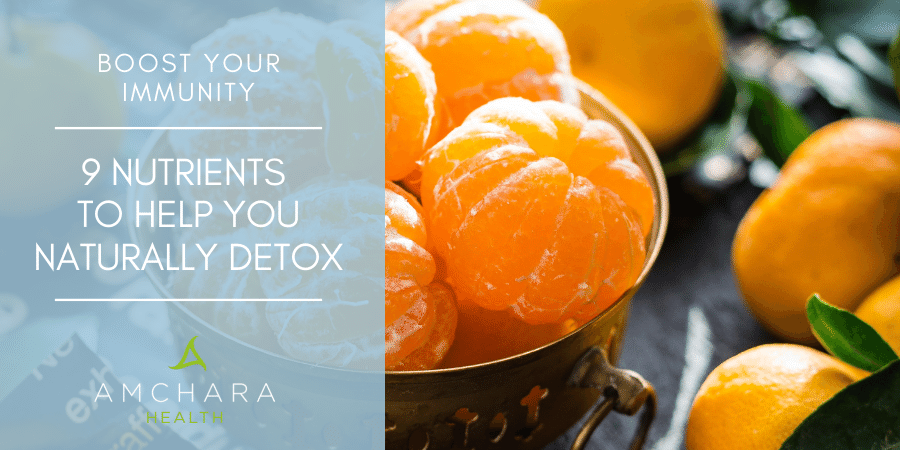Topics Covered in this article:
There are many ways to naturally support your body’s innate ability to detox, and boost your immune system. Having a strong immune system is vital for good health, to reduce suffering and severity of symptoms from infectious diseases and chronic health conditions, and the strength of your immune system will impact how quickly you are able to recover.
As well as protecting you from infection and disease, your immune system plays an important role in bodily ‘housekeeping’ – effectively hoovering out damaged tissues and malignant growth in cells.
Your digestive system, mucus membranes, waste removal systems and even your skin are all active parts of the immune system. The body is constantly cleansing and detoxing – your kidneys, digestive system and of course, liver, are all vital to optimising these detox processes.
If you suffer from frequent infections, or skin and digestive problems, food sensitivities or fatigue, this may be an indicator that your immune system is not functioning optimally.
It is important to remember that healthy lifestyle choices are fundamental to reduce stress on the body and boost your immune system; making sure you manage your response to stress, get enough sleep and stay hydrated are some of the basic pillars that are key to supporting your overall health and wellbeing.
In addition to healthy lifestyle choices, here are some of our favourite, evidence-based, natural ways to help support both your body’s detox processes and your immune system.
Vitamin C
Perhaps one of the most well known and highly effective antioxidants, Vitamin C plays a myriad of roles and is probably one of the biggest immune boosters. One study supports the fact that Vitamin C acts with other micronutrients synergistically, and enhances skin barrier function as well as protective activities of immune cells. It helps protect cells from toxicity and free radical damage resulting from factors such as stress, lack of sleep, lack of exercise, poor diet and environmental toxin exposure. It plays a vital role in the production of collagen – crucial for healthy bones, skin, blood vessels and teeth. Vitamin C is also important for maintaining the nervous system, as well as aiding the absorption of iron and protein. Research indicates that combining Vitamin C with zinc has an immune-enhancing effect, and it can help to combat stress when combined with a B-complex.
It is important to consume Vitamin C regularly, as the body is unable to make or store it. Rather than reaching for an orange supplement, increase your intake of Vitamin C rich foods. Citrus fruits are widely recognised to be a good source of Vitamin C, but many other plant foods have equivalent or higher levels of Vitamin C. Just one serving of cauliflower can provide almost three quarters of your recommended daily intake. Other Vitamin C rich foods include Brussels sprouts and potatoes. Intravenous high dose Vitamin C has been shown to reduce oxidative stress, which is known to damage proteins, cells and DNA and so contribute to ageing, as well potentially contributing to the development of various chronic health conditions.
Vitamin D
One of Vitamin D’s roles is to help regulate the body’s amounts of phosphate and calcium. Its role in absorbing calcium is vital for maintaining bone strength; a lack of Vitamin D can lead to bone deformities and an increased risk of viral infections. Vitamin D is very important for keeping your immune system strong, as well as supporting the heart, brain, lungs and teeth.
Your skin’s cells need cholesterol, as the first step in making Vitamin D – this process happens through exposure to UVB light – and you will still maintain Vitamin D levels if you protect your skin with suncream. A minimum of 20 minutes of direct sunlight on lighter skin tones is typically adequate. Darker skin tones are less efficient at making Vitamin D, because a higher level of melanin in the skin hinders Vitamin D synthesis, and so will need greater UVB exposure. Good Vitamin D food sources include egg yolks, oily fish, meat and dairy (such as milk, cheese and yoghurt). Vegetarian options include mushrooms, and to boost calcium good choices are spinach, okra, kale, soybeans and calcium-fortified foods such as some breakfast cereals and orange juice.
Magnesium
is nutrient is necessary to keep your body healthy. It is involved in over 300 enzyme reactions, and plays a vital role in the maintenance of blood sugar levels and blood flow, regulating muscle and nerve function, and supporting the immune system. Magnesium has a strong relationship with the immune system, and magnesium deficiency has been shown to be related to impaired immune function. Adequate magnesium is also thought to help prevent and treat chronic conditions and diseases such as Alzheimer’s, migraines and Type 2 diabetes. Magnesium can also help improve your sleep, partly as a result of its importance in quieting your nervous system, promoting activation of calming mechanisms and aiding relaxation.
Magnesium is found in many common foods although levels are typically reduced as a result of soil depletion. Almonds, spinach and cashew nuts are good choices and other plant sources include avocados, brown rice, green leafy vegetables, nuts, sesame seeds, watercress and whole grains. Animal sources include dairy, fish, meat and seafood.
Zinc
Another vital nutrient, zinc is anti-viral and can help multiple aspects of the immune system to defend the body from viruses and bacteria. It reduces oxidative stress, aids growth, DNA synthesis, cell growth and division, and wound healing. Zinc is an essential nutrient, meaning your body can’t make or store it, and so it must be obtained through diet. There have been several studies showing the benefits of zinc supplementation on infectious diseases in humans. One recent study showed that zinc supplementation to elderly subjects resulted in a significant decrease in the incidence of infections, thought to be partly as a result of zinc’s effect on decreasing the generation of inflammatory cytokines, and reducing oxidative stress.
Foods naturally rich in zinc include shellfish, red meat and poultry, fish, eggs, dairy, whole grains, nuts and seeds, legumes, and some vegetables such as mushrooms, asparagus, kale and peas.
Vitamin B12
This nutrient, also known as cobalamin, is a water-soluble vitamin involved in the metabolism of every cell in your body. It is another vitamin your body can’t produce, and so much be sourced from the diet. It helps keep the body’s blood cells healthy and can prevent anaemia. Playing an important part in lowering homocysteine, which reduces systemic and vascular inflammation, it thus helps to moderate the immune response and is crucial to the immune system’s proper functioning and healthy balance.
Immune cells’ activity is inhibited by B12 depletion, and a lack of Vitamin B12 has been linked to symptoms such as breathing issues, depression and fatigue. Choose quality beef, liver, fish, shellfish and eggs, as well as dairy and fortified breakfast cereals to boost your B12 levels.
Selenium
Selenium helps the immune system protect the body against infection. This antioxidant trace element protects the immune system – especially the natural killer cells – and is also anti-viral and helps prevent viral mutations. It is thought that selenium deficiency affects up to one billion people worldwide, partly as a result of soil depletion.
Good food sources include nuts (brazil nuts are an excellent selenium boost), fish such as tuna and sardines, meat, eggs, seeds and seafood.
Ginger
Research suggests that ginger can enhance the immune response, and it also benefits immune health through its antibacterial and antiviral properties. Ginger is rich in antioxidants which may help your body against chronic disease as well as promote healthy ageing.
Turmeric
Often thought to be beneficial when combined with ginger, turmeric, and particularly its active ingredient, curcumin, is known to be a powerful modulator of the immune system. It can also ease arthritis symptoms and help prevent chronic diseases such as Alzheimer’s and cancer. The bioavailability of curcumin is enhanced when combined with black pepper.
Fermented foods
Fermented foods such as kimchi, kombucha, yoghurt, miso, tempeh and sauerkraut are high in probiotics, giving your immune system a boost and protecting against the risk of infections. They can also aid digestion and may reduce heart disease.
Other micronutrients which are beneficial for overall health and particularly the immune system include ginseng and ashwagandha, garlic, raw honey, Vitamin E, Omega 3 oils, folic acid, beta glucan (found in oats, seaweed, shiitake and reishi mushrooms) and quercetin (found in apples, honey, onions, red grapes, green leafy vegetables and citrus fruits).
Eating a varied and healthy diet is vital to naturally support your body’s innate ability to detox and boost your immune system naturally, making sure your body is well prepared to defend itself against illness and disease.
Read this next:





